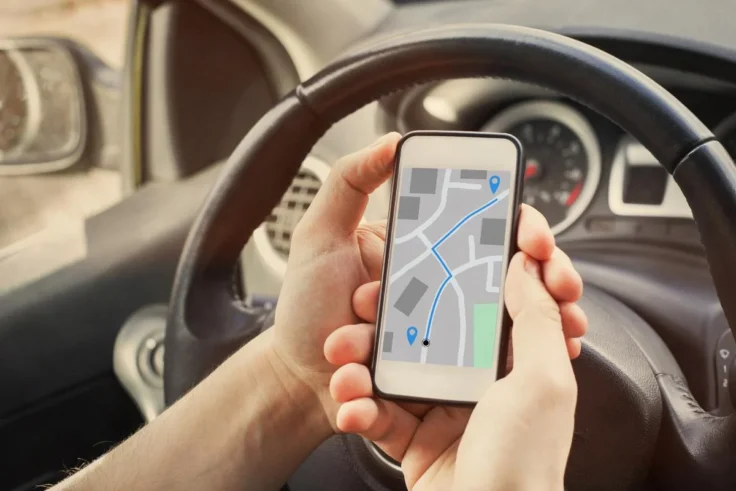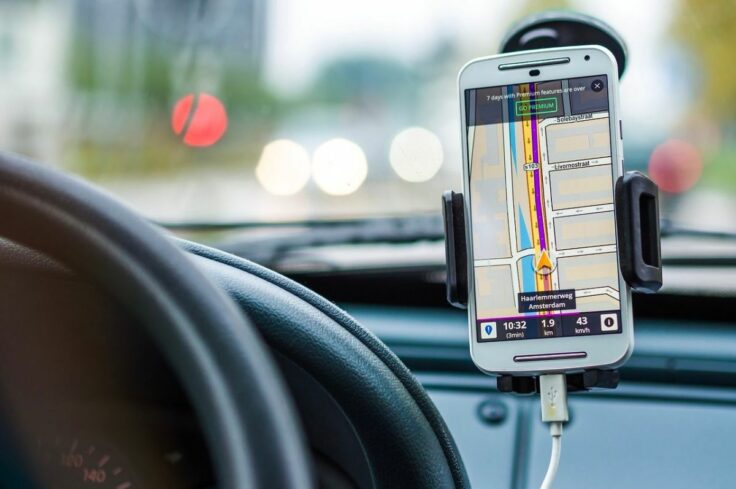GPS tracking devices have revolutionized the world of driving safety and security. They are an essential asset for both individuals and fleet management companies.
These devices offer more than location services. They give real-time data about vehicle speed, driver behavior, and vehicle diagnostics. This data helps businesses monitor performance and efficiency, for safer and more secure journeys.
GPS tracking devices can set geofences. Virtual boundaries on a digital map let businesses get notifications if a vehicle enters or leaves a certain area. This is valuable in high-risk areas and when transporting sensitive cargo, to increase security and response times.
The history of GPS tracking goes back to the 1980s, when it was used by the military. Over time, it became something the public could use. It has changed transportation and logistics. Today, it has made driving safer and smoother for all.
The Importance of Driving Safety and Security

When it comes to driving, safety and security are a must. With more cars on the roads and chaotic traffic, embracing measures that prioritize drivers’ and passengers’ wellbeing is essential.
Family1st GPS tracking devices for cars have become popular in recent years. They help improve road safety by sending real-time location updates, monitoring vehicle speed and helping emergency response teams locate a car in case of an accident or theft.
GPS trackers also help with driving security. Fleet managers can keep an eye on their assets, making sure they’re used properly and not for any unauthorized activities. This reduces operation costs and deters theft or vandalism.
GPS tracking devices offer more than traditional security measures. Some devices can alert drivers and fleet managers when a car leaves a designated area or deviates from its route. This way, immediate action can be taken, avoiding any bad incidents.
GPS tracking devices are important for our safety on the road. Investing in these technologies can give us peace of mind knowing our loved ones are safe and our assets are secure. Make the smart choice for driving safety and security today!
The Role of GPS Tracking Devices
GPS trackers are essential for driving safety and security. They provide real-time monitoring, allowing efficient fleet management. Trackers have location tracking, geofencing, speed monitoring, and route optimization features.
Let’s look at the key points of GPS tracking devices:
- Location Tracking: GPS trackers accurately report a vehicle’s exact location. This enables fleet managers to track their assets.
- Geofencing: It is possible to set virtual boundaries, known as geofences. If a vehicle enters or exits this area, an alert or notification is sent. This prevents unauthorized use or theft.
- Speed Monitoring: Trackers can monitor speed. Managers set a speed limit and get instant notifications when it is exceeded. This promotes safe driving and reduces accidents.
- Route Optimization: Trackers analyze traffic and suggest the most efficient route. This saves time and fuel.
GPS trackers offer many other benefits. They help law enforcement recover stolen vehicles. They also help improve driver behavior by monitoring acceleration, braking, and idling time.
To make the most of GPS trackers, here are some tips:
- Train drivers on how to use trackers to optimize routes.
- Set clear policies regarding speeding and ensure drivers understand the consequences of violations.
- Conduct regular maintenance checks on devices.
- Integrate GPS data with analytics tools for comprehensive insights.
These actions can enhance driving safety, efficiency, and reduce operational costs. GPS trackers have become essential in the transportation industry. They contribute to enhanced security and business profitability.
Features to Look for in GPS Tracking Devices

For the best GPS tracking experience, consider the features it offers. These features make driving safer and more secure, allowing you to relax.
- Real-Time Tracking: Keep an eye on your vehicle’s location quickly and accurately.
- Geofencing: Set virtual boundaries and get notifications when entering/exiting.
- Speed Monitoring: Know when your vehicle exceeds set speed limits.
- Remote Engine Shutdown: Stop unauthorized use from afar.
- Emergency Alerts: Receive alerts in case of accidents or medical emergencies.
- Historical Data Tracking: Analyze past routes and locations.
For even more features, check compatibility with multiple devices. Plus, a reliable battery life is essential. Install and secure the device correctly, for accurate tracking.
By picking the right device and setting it up properly, you can make the most of GPS tracking. Peace of mind on the road is worth the investment.
Integration of GPS Tracking Devices with Vehicle Systems
GPS tracking devices and vehicle systems can be integrated for a range of benefits. Real-time location tracking enables accurate monitoring of vehicle whereabouts. This aids in theft recovery and emergency response. Geofencing triggers alerts when vehicles enter or exit predefined areas, helping prevent unauthorized usage. Driver behavior monitoring can identify patterns for training that minimize risky driving. Maintenance scheduling reminds of vehicle servicing, extending the lifespan of fleets. Fuel efficiency tracking analyses fuel consumption, reducing costs and environmental impact.
Software integration aggregates data from various systems into a single platform. An example of this is a delivery company. After their driver broke down in an unfamiliar area late at night, they were able to locate the exact position and promptly dispatch assistance. This ensured their driver’s safety and reduced breakdown downtime.
GPS integration brings us closer to safer journeys. It enhances both safety and security, with optimized fleet management and better driver behavior monitoring. This offers organizations great potential for improved operational efficiency on the roads.
Case Studies: Successful Implementation of GPS Tracking Devices for Driving Safety
GPS tracking devices have been shown to improve driving safety and security through numerous case studies. Here are three successful implementations:
- A delivery company installed the devices in their fleet management system. This let them monitor their vehicles’ locations and movements. As a result, fewer accidents happened and driver behavior improved.
- Insurance companies offered lower premiums for customers who installed GPS trackers in their vehicles. This way, insurers could monitor driving habits, like speeding, for safer roads.
- Schools put GPS trackers on their buses. This enabled parents and administrators to monitor the bus’ location in real-time. Alerts were sent out if there were any route changes or unplanned stops.
These cases show how GPS trackers help prevent accidents and promote safer driving. Additionally, the National Highway Traffic Safety Administration found that vehicles with trackers are 50% less likely to be involved in collisions.
Potential Challenges and Limitations of GPS Tracking Devices

GPS tracking devices have truly changed driving safety and security, yet they come with possible difficulties and constraints. Let’s investigate these obstacles more in-depth.
One restriction of GPS tracking devices is their dependence on satellite signals. In places with poor reach or high buildings, the device’s accuracy could be affected.
Another challenge is tech-savvy criminals could tamper with or disable the device. This puts vehicle owners in jeopardy of theft or unapproved use.
The device also needs a power source to operate. If it’s not installed properly or its battery dies, it renders the tracking system useless.
Privacy worries might come up as GPS tracking devices collect data on a person’s location and movements. This brings up questions about monitoring and the possibility of misuse of personal information.
In spite of these issues, there are steps that can be taken to reduce their impact:
- Regular maintenance and testing of the device guarantees its proper functioning and precision.
- Putting in extra protective features, such as anti-tamper mechanisms or backup power sources, can improve its effectiveness.
- Giving vehicle owners the right information about privacy implications and obtaining their consent can solve privacy issues and promote openness.
By managing these potential obstacles and limits, we can maximize the advantages of GPS tracking devices while reducing their disadvantages. It’s important to continuously assess and improve these systems to make sure they remain effective tools for driving safety and security.
Final Words
GPS tracking devices are revolutionizing driving safety and security. Real-time vehicle monitoring helps with emergency response. Tracking stolen cars is much easier too.
Preventing accidents is a major benefit. GPS tracking monitors speed and location. It also collects driver behavior data, so extra training can be provided where needed.
These devices can even be used to remotely immobilize vehicles. If a car is stolen, law enforcement can disable the engine and quickly apprehend the thieves.
GPS tracking isn’t just for cars. Trucks, motorcycles and bicycles can use it too. So, it’s ideal for people and businesses seeking to secure their assets.
Frequently Asked Questions
1. How can GPS tracking devices improve driving safety?
GPS tracking devices can improve driving safety by providing real-time information on the vehicle’s location, speed, and direction. This allows drivers to stay on designated routes, avoid unsafe areas, and adhere to speed limits. With automated alerts for speeding or driving erratically, GPS tracking devices promote safer driving habits.
2. Are GPS tracking devices accurate in providing vehicle location?
Yes, GPS tracking devices use satellite technology to provide accurate and precise vehicle location data. They can pinpoint the vehicle’s exact coordinates within a few meters. However, factors like tall buildings, tunnels, or dense forests may slightly affect the accuracy.
3. Do GPS tracking devices offer theft recovery assistance?
Yes, GPS tracking devices play a significant role in theft recovery. If a vehicle equipped with a GPS tracker is stolen, the device can transmit its real-time location to the owner or law enforcement authorities. This information helps in recovering the stolen vehicle quickly.
4. Can a GPS tracking device monitor driver behavior?
Yes, GPS tracking devices can monitor various driver behaviors such as speeding, harsh braking, rapid acceleration, or aggressive turning. This information enables drivers and fleet managers to identify unsafe driving practices and take corrective actions to enhance overall safety.
5. Are GPS tracking devices legal?
In most countries, using GPS tracking devices for personal or business purposes is legal as long as the device is installed in a vehicle owned by the person or organization using it. However, it is crucial to comply with local laws and regulations regarding the use of such devices.
6. Can GPS tracking devices help in reducing fuel consumption and maintenance costs?
Yes, GPS tracking devices can help in reducing fuel consumption and maintenance costs. By monitoring idle time, optimizing routes, and reducing unauthorized vehicle usage, GPS tracking devices promote fuel efficiency. Additionally, tracking maintenance schedules and vehicle diagnostics can prevent costly breakdowns and prolong vehicle lifespan.
